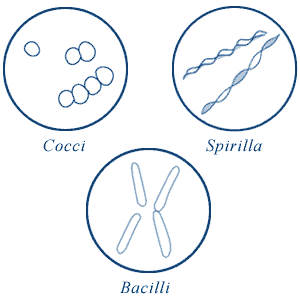http://www.nationmaster.com/encyclopedia/Lactobacillus-acidophilus
- gets its name from lacto- meaning milk, -bacillus meaning rod-like in shape, and acidophilus meaning acid-loving
- thrives in more acidic environments than most related microorganisms (pH 4-5 or lower) and grows best at 45 degrees Celsius.
- occurs naturally in the human (and animal) intestine, mouth, and vagina
- inhabit the intestines and vagina and protect against some unhealthy organisms
- improves gastrointestinal function, boosts immune system, decreases the frequency of vaginal yeast infections. Also provides relief from indigestion and diarrhea
- often sold in health stores in pill or powder form as a nutritional supplement.
- associated with dental cavities
- used to make yogurt, sweet acidophilus milk, and other fermented dairy products
http://www.healthline.com/galecontent/acidophilus?utm_medium=ask&utm_source=smart&utm_campaign=article_alt&utm_term=lactobacillus+acidophilus&ask_return=Acidophilus
- known as a probiotic
- Probiotic organisms secrete enzymes that support healthy digestion
- may possibly be helpful in the treatment of canker sores, fever blisters, hives, and adolescent acne. Its use has also been suggested as a preventative for colon cancer.
http://www.umm.edu/altmed/articles/lactobacillus-000310.htm
- the most commonly used probiotic
- breaks down food, leading to production of lactic acid, hydrogen peroxide, and other byproducts that make the environment hostile for undesired organisms
USES:
- Replacing the "friendly" intestinal bacteria destroyed by antibiotics.
- Aiding digestion and suppressing disease-causing bacteria.
- Preventing and treating diarrhea, including infectious diarrhea, particularly from rotavirus (a virus that commonly causes diarrhea in children).
- Treating overgrowth of "bad" organisms in the gastrointestinal tract (a condition that tends to cause diarrhea and may occur from use of antibiotics).
- Alleviating symptoms of irritable bowel syndrome and, possibly, inflammatory bowel disease (such as Crohn's disease and ulcerative colitis).
- Preventing and/or reducing the recurrence of vaginal yeast infections, urinary tract infections, and cystitis (bladder inflammation). The best scientific evidence exists for vaginal infections.
- Improving lactose absorption digestion in people who are lactose intolerant
- Enhancing the immune response. Studies have suggested that consumption of yogurt or milk that contains specific strains of Lactobacillus or supplements with Lactobacillus or Bifidobacterium may improve the natural immune response. Further research is needed to confirm these early findings and to best understand how the improved immune function may or may not help in warding off infections.
- Aiding the treatment of respiratory infections such as sinusitis, bronchitis, and pneumonia. More research is needed in this area.
- Lowering risk of allergies. Examples include asthma, hay fever, food allergies to milk, and skin reactions such as eczema.
- Helping to treat high cholesterol. More research is needed.
- Reducing the risk of recurring bladder tumors once this cancer has been treated. Much more research is needed in this area.
- Other conditions under investigation for use of probiotics include colon cancer, HIV related diarrhea, and Helicobacter pylori, an organism that can lead to development of ulcers.
PICTURES:



Comments (0)
You don't have permission to comment on this page.